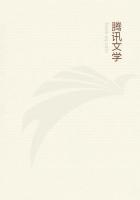For example, it was a principle with the Kamtchatkans never to kill a land or sea animal without first ****** excuses to it and begging that the animal would not take it ill. Also they offered it cedarnuts and so forth, to make it think that it was not a victim but a guest at a feast. They believed that this hindered other animals of the same species from growing shy. For instance, after they had killed a bear and feasted on its flesh, the host would bring the bear's head before the company, wrap it in grass, and present it with a variety of trifles. Then he would lay the blame of the bear's death on the Russians, and bid the beast wreak his wrath upon them. Also he would ask the bear to inform the other bears how well he had been treated, that they too might come without fear. Seals, sea-lions, and other animals were treated by the Kamtchatkans with the same ceremonious respect. Moreover, they used to insert sprigs of a plant resembling bear's wort in the mouths of the animals they killed; after which they would exhort the grinning skulls to have no fear but to go and tell it to their fellows, that they also might come and be caught and so partake of this splendid hospitality. When the Ostiaks have hunted and killed a bear, they cut off its head and hang it on a tree. Then they gather round in a circle and pay it divine honours. Next they run towards the carcase uttering lamentations and saying, Who killed you? It was the Russians. Who cut off your head? It was a Russian axe. Who skinned you? It was a knife made by a Russian. They explain, too, that the feathers which sped the arrow on its flight came from the wing of a strange bird, and that they did nothing but let the arrow go. They do all this because they believe that the wandering ghost of the slain bear would attack them on the first opportunity, if they did not thus appease it. Or they stuff the skin of the slain bear with hay; and after celebrating their victory with songs of mockery and insult, after spitting on and kicking it, they set it up on its hind legs, and then, for a considerable time, they bestow on it all the veneration due to a guardian god. When a party of Koryak have killed a bear or a wolf, they skin the beast and dress one of themselves in the skin. Then they dance round the skin-clad man, saying that it was not they who killed the animal, but some one else, generally a Russian. When they kill a fox they skin it, wrap the body in grass, and bid him go tell his companions how hospitably he has been received, and how he has received a new cloak instead of his old one. A fuller account of the Koryak ceremonies is given by a more recent writer. He tells us that when a dead bear is brought to the house, the women come out to meet it, dancing with firebrands. The bear-skin is taken off along with the head; and one of the women puts on the skin, dances in it, and entreats the bear not to be angry, but to be kind to the people. At the same time they offer meat on a wooden platter to the dead beast, saying, Eat, friend. Afterwards a ceremony is performed for the purpose of sending the dead bear, or rather his spirit, away back to his home. He is provided with provisions for the journey in the shape of puddings or reindeer-flesh packed in a grass bag. His skin is stuffed with grass and carried round the house, after which he is supposed to depart towards the rising sun. The intention of the ceremonies is to protect the people from the wrath of the slain bear and his kinsfolk, and so to ensure success in future bear-hunts. The Finns used to try to persuade a slain bear that he had not been killed by them, but had fallen from a tree, or met his death in some other way; moreover, they held a funeral festival in his honour, at the close of which bards expatiated on the homage that had been paid to him, urging him to report to the other bears the high consideration with which he had been treated, in order that they also, following his example, might come and be slain. When the Lapps had succeeded in killing a bear with impunity, they thanked him for not hurting them and for not breaking the clubs and spears which had given him his death wounds; and they prayed that he would not visit his death upon them by sending storms or in any other way. His flesh then furnished a feast.
The reverence of hunters for the bear whom they regularly kill and eat may thus be traced all along the northern region of the Old World from Bering's Straits to Lappland. It reappears in similar forms in North America. With the American Indians a bear hunt was an important event for which they prepared by long fasts and purgations. Before setting out they offered expiatory sacrifices to the souls of bears slain in previous hunts, and besought them to be favourable to the hunters. When a bear was killed the hunter lit his pipe, and putting the mouth of it between the bear's lips, blew into the bowl, filling the beast's mouth with smoke. Then he begged the bear not to be angry at having been killed, and not to thwart him afterwards in the chase. The carcase was roasted whole and eaten; not a morsel of the flesh might be left over. The head, painted red and blue, was hung on a post and addressed by orators, who heaped praise on the dead beast. When men of the Bear clan in the Ottawa tribe killed a bear, they made him a feast of his own flesh, and addressed him thus: Cherish us no grudge because we have killed you. You have sense; you see that our children are hungry. They love you and wish to take you into their bodies. Is it not glorious to be eaten by the children of a chief? Amongst the Nootka Indians of British Columbia, when a bear had been killed, it was brought in and seated before the head chief in an upright posture, with a chief's bonnet, wrought in figures, on its head, and its fur powdered over with white down. A tray of provisions was then set before it, and it was invited by words and gestures to eat. After that the animal was skinned, boiled, and eaten.















